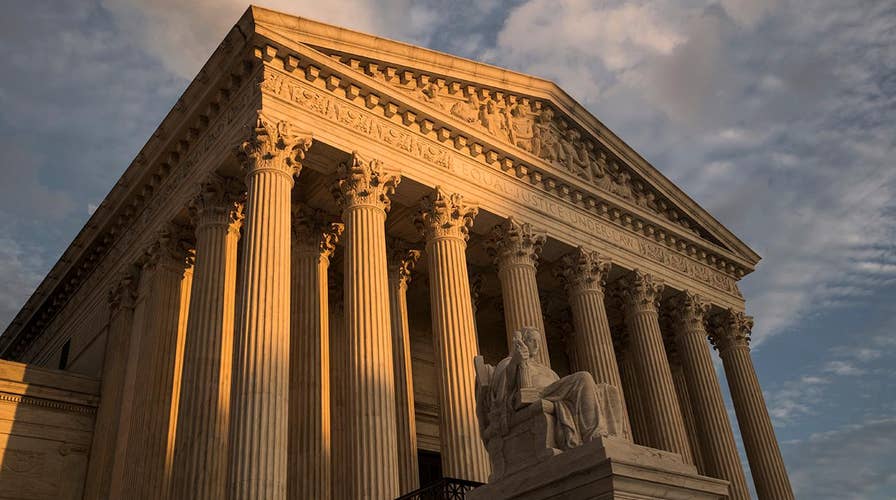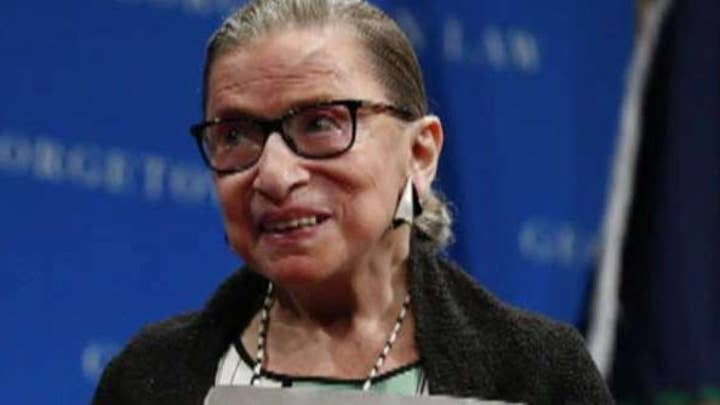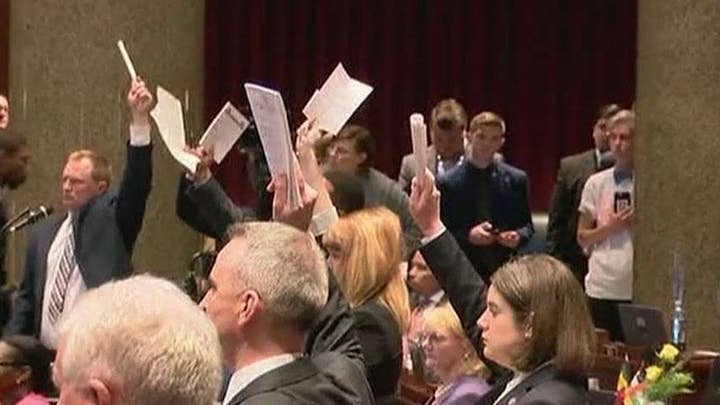Supreme Court upholds ruling that blocks part of Indiana abortion law signed by then-Gov. Mike Pence
Court watchers suggest the ruling is a compromise by the Supreme Court to stay out of the larger fight over abortion -- at least for now; Mike Emanuel reports.
Supreme Court Justices Ruth Bader Ginsburg and Clarence Thomas had two very different opinions when it came to a ruling on Tuesday that effectively upheld an Indiana law on disposal of fetal remains.
The court’s ruling allowed Indiana to enforce a requirement that abortion clinics either bury or cremate fetal remains following an abortion. The justices said in an unsigned opinion that the case does not involve limits on abortion rights. Ginsburg was one of two liberal-leaning justices who dissented.
Ginsburg said in a short solo opinion that she believes the issue does impact a woman's right to have an abortion "without undue interference from the state."
Ginsburg’s dissent was not met well by Thomas, who said that it “makes little sense” and “lacks evidentiary support.”
SUPREME COURT DECISIONS EXPECTED ON CITIZENSHIP QUESTION ON 2020 CENSUS, RELIGIOUS LIBERTIES
“Justice Ginsburg does not even attempt to argue that the decision below was correct,” Thomas said in his opinion. “Instead, she adopts Chief Judge Wood’s [who wrote the federal appeals court ruling from the 7th Circuit] alternative suggestion that regulating the disposition of an aborted child’s body might impose an “undue burden” on the mother’s right to abort that (already aborted) child.”
Thomas supports overturning the Roe v. Wade decision that first declared abortion rights the law of the land,. His 20-page opinion sought to link birth control and abortion to eugenics, the now-discredited movement to improve the human race through selective reproduction.
The Indiana provision promotes "a state's compelling interest in preventing abortion from becoming a tool of modern-day eugenics," Thomas wrote.
Ginsburg did not take kindly to Thomas’ retort or use of the word “mother.”
“Justice Thomas’ footnote displays more heat than light,” she wrote. “A woman who exercises her constitutionally protected right to terminate a pregnancy is not a “mother.”
CLICK HERE TO GET THE FOX NEWS APP
One other noteworthy aspect of the court's action Tuesday was the silence of liberal Justices Stephen Breyer and Elena Kagan, who vote regularly to uphold abortion rights. By not joining their liberal colleagues in dissent, Breyer and Kagan helped Roberts in his desire to avoid, where possible, controversial outcomes that split the five conservatives and four liberals. The two may have sought to preserve their ability to negotiate with, if not influence, Roberts in other cases.
The court upheld the fetal-remains provision under the least-stringent standard of review that courts employ. The legislation only needed to be rationally related to the state's interest in the proper disposal of the remains, the court said. Indiana met that burden, it said.
The court said it is leaving open court challenges to similar laws under a higher legal standard.
The Associated Press contributed to this report.















































